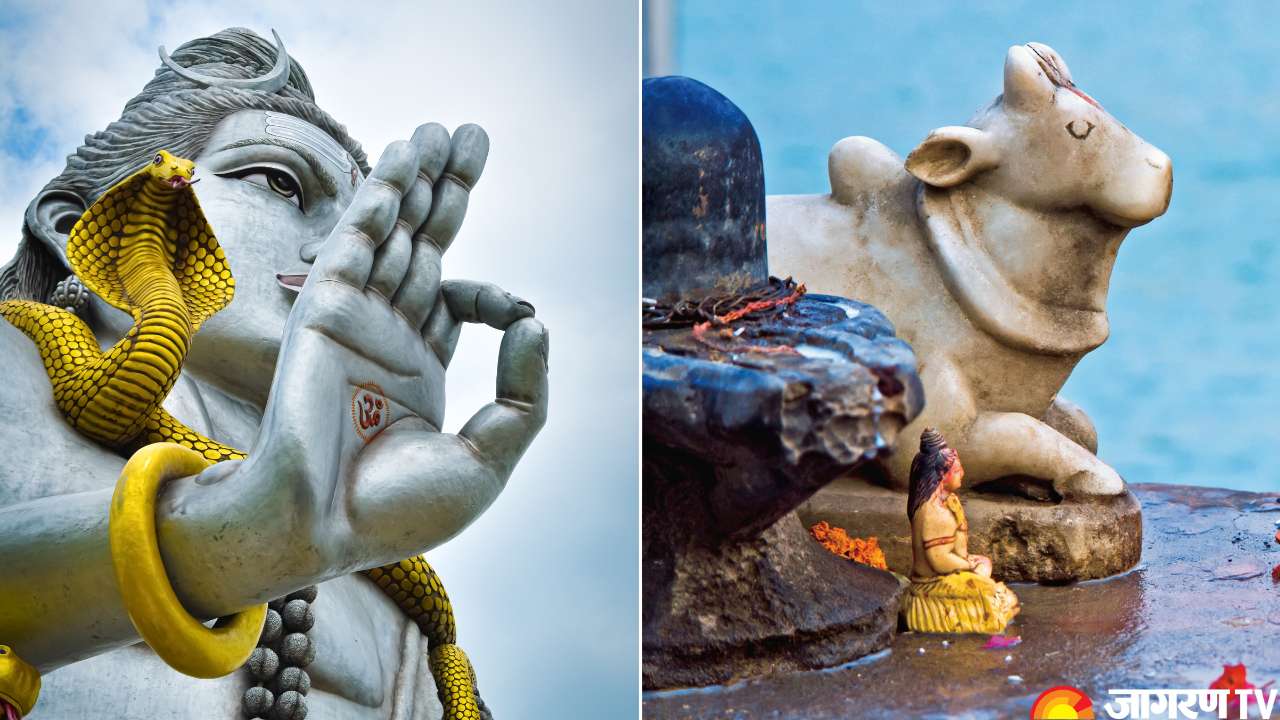Sawan 2024: Why People Avoid Eating Non-Veg During Shravan Month? Exploring Scientific & Ayurvedic Beliefs

Sawan 2024: Sawan, or Shravan, is the fifth month of the Hindu lunar calendar and is regarded as one of the most auspicious times in Hinduism. This month is dedicated to Lord Shiva, and numerous festivals and rituals are held during this time. Sawan typically falls between July and August, coinciding with India’s monsoon season. Devotees participate in a variety of religious activities, such as fasting for Sawan Somwar, praying, and visiting temples dedicated to Lord Shiva.
Sawan 2024 Date
The Sawan month will begin on July 22, 2024, and end on August 19, 2024, on the occasion of Rakshabandhan. Every Monday in Sawan is special, and this year there are five Mondays in the month. One of the most important practices during this time is to observe the Sawan Somwar Vrat (fast). Devotees, particularly women, fast on Mondays to seek Lord Shiva's blessings for their families’ well-being and personal spiritual development.
The Shravan month is closely associated with vegetarian cuisine, as non-vegetarian food is forbidden during this time. Being an ancient ritual, some consider it a family tradition, while others see it as a form of worship to the Almighty. However, many of us are unaware of the actual reasons for avoiding non-vegetarian foods during Sawan. Let us first learn about the rules before delving deeper into the topic.
Rituals of Sawan
The observance of Sawan comes with a set of traditions and rituals followed by devotees. These include:
Fasting (Vrat)
Many devotees fast on Mondays, known as Sawan Somvar, and devote the day to Lord Shiva.
Eating Preference
Non-vegetarian food is strictly prohibited during Sawan. Devotees also avoid consuming alcohol and other intoxicating substances.
Pilgrimages
Many devotees visit Lord Shiva temples, particularly the Jyotirlingas, as is customary during Sawan. The Char Dham Yatra and Amarnath Yatra are among these rituals.
Kanwar Yatra
Pilgrims carry water from the Ganga in containers known as “kanwars” and walk barefoot to Shiva temples. This yatra represents Lord Shiva's journey with Ganga water to cool the poison.
Offering
Devotees ritually bathe Shiva Linga with water, milk, honey, and other sacred substances. This symbolizes purity and devotion.
Chanting Mantras
Reciting Shiva mantras, particularly the Maha Mrityunjaya Mantra, is popular during Sawan. It is believed to provide both protection and healing.
Why We Shouldn’t Eat Non-Vegetarian in Sawan?
According to Hinduism, each day of this month is dedicated to a specific God and holds significance for the devotees, so the entire month is considered auspicious. Sawan also hosts several major Hindu festivals, including Teej, Krishna Janmashtami, Raksha Bandhan, and Naag Panchami. Thus, it is advised to avoid eating non-vegetarian foods during the holy month of Sawan. Other reasons include:
Increased Risk of Infection
The monsoon season is marked by high humidity and fluctuating temperatures, which can promote the growth of bacteria and other pathogens. Non-vegetarian food, particularly meat and fish, is more prone to contamination and spoilage during this time, raising the risk of foodborne illness.
Digestive Health
The human digestive system is more vulnerable during the monsoon season due to climate and dietary changes. Vegetarian food is easier to digest than non-vegetarian food, which can put extra strain on the digestive system.
Breeding Season
Many animals and fish rely heavily on the monsoon season to reproduce. Abstaining from non-vegetarian foods during this time helps to preserve wildlife and maintain ecological balance.
Ayurveda Behind Avoiding Non-Vegetarian Food in Sawan
The observance of Sawan is deeply rooted in both spiritual and practical considerations. Abstaining from non-vegetarian food during this month is not only supported by science, but Ayurveda also believes in avoiding certain food choices to avoid health concerns.
Balancing Doshas
According to Ayurveda, the monsoon season can aggravate Pitta dosha (one of the three primary bodily energies). Non-vegetarian food is regarded as “heaty” and can exacerbate Pitta, resulting in imbalances and health issues such as acidity, indigestion, and skin problems. Monsoons have an impact on both the Kapha and Vata doshas. Consuming vegetarian foods helps to balance these doshas, promoting overall health and harmony in the body.
Purification and Detoxification
Fasting and eating light, vegetarian foods during Sawan help to detoxify the body. This practice is thought to rid the body of accumulated toxins, improving physical and mental health.
Spiritual and Mental Well-being
A vegetarian diet is classified as Sattvic (pure) in Ayurveda. It promotes mental clarity, calmness, and spiritual development. During Sawan, devotees strive to purify their minds and bodies to achieve a higher level of spiritual consciousness, and a Sattvic diet helps them accomplish this goal.









